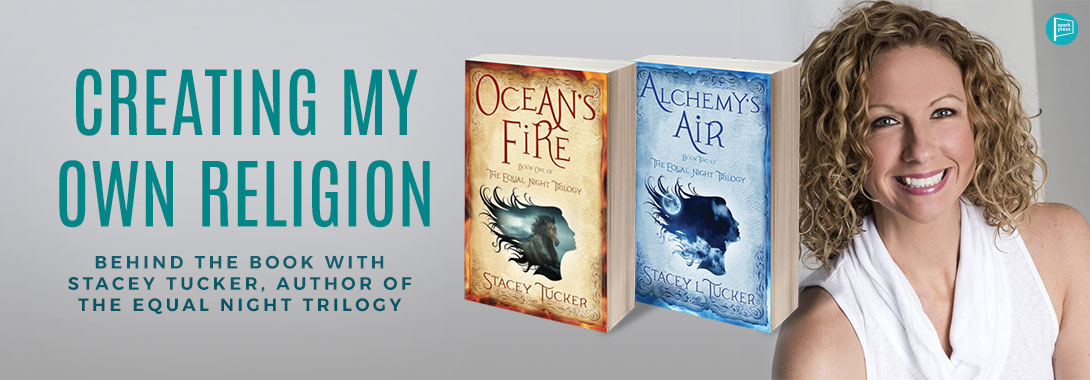
Is the Book of Sophia real?
More than a few readers of my trilogy have asked this. Aside from sending me down the rabbit hole of reality, this question made me think about how religious texts shape our beliefs so profoundly; the mere fact that they exist gives them extraordinary power.
To challenge dogma, even in fiction, can be controversial because it’s steeped in centuries of rigid beliefs. But I was fortunate that, when the idea of Sophia and the Divine Feminine crossed my path, I was open and curious enough to let it in.
In Greek mythology, Sophia is the goddess of Wisdom. Important, yes, but in Christian Mysticism and Gnostic texts, Sophia ranks even higher, as the Holy Spirit, the divine feminine face of God. Being raised Catholic, I had never been taught the feminine face of anything other than Mother Mary. The idea that God could be female was a game changer for me. I was so enamored by the concept that I created a trilogy around it, taking pieces of long-forgotten cultures and resurrecting them to fit into our modern world.
In my opinion, traditional religions should consider adopting this buffet method to retain their twenty-first century members. Already, many seekers pick what resonates with them and leave the rest. As we evolve as a species, we need the approval of perceived authority less and less, and replace it with our own.
In doing research for the trilogy, I delved deep into the systematic extermination of the innate magic of being a woman, especially by early church fathers. I’ve made it my mission to bring that magic back. I combined the beauty of our ancient past, where goddesses were revered and sex was sacred, with what we know about the inherent energy fields in the human body. From that, my ancient Book of Sophia was born.
In my trilogy, I layered actual events with my own account to create a story to inspire. As women, it’s important we reclaim a history shattered by those seeking power and control. My books attempt to restore some of that history. The Book of Sophia is a gift to the women of the world, a reminder of their extraordinary power as mothers, daughters, wives, and women of the twenty-first century, carrying the legacy of what it means to be a woman into the future. It’s also a reminder that the future depends on the choices we make now.
I based the Book of Sophia on the concept of the Akashic Records, which is a mystical library of all the occurrences on our planet since time began . . . past, present and future. It’s a record not just of actions, but also thoughts and desires. Everything that exists in potential, exists in the Book of Sophia. And like the Akashic Records, the future is malleable, subject to human will.
At first pass, Sophia’s book contains the story of Skylar’s life. But after our protagonist digs deeper into her own beliefs, the book’s true magic opens to her, revealing the secrets of the First Age and the plan to restore balance and harmony to our world. Skylar is able to see the glory of what is gifted to the human race, if we are willing to open our hearts.
They say no writing is truly original—and I have to agree. We are all pulling from the ethers into our world of form. It’s how much of your own voice you infuse in a story that makes it your own. And how far you’re willing to go. It’s easy to say what’s on your mind, a hell of a lot harder to say what’s in your heart. This is the seat of your quiet truth that often gets buried by the noise of our lives. Your heart is where you find your authenticity. This is where Sophia lives.
This story is my heroine’s journey, one that runs alongside my own metamorphosis as a writer and as a woman. I’m happy to say we’re both still evolving. Because of Sophia, my outlook on how life could be was forever changed, and I am forever grateful.
So is the Book of Sophia real? You bet your ass it is, because I made it so.

You absolutely created the magic… thank you for being so inspiring.